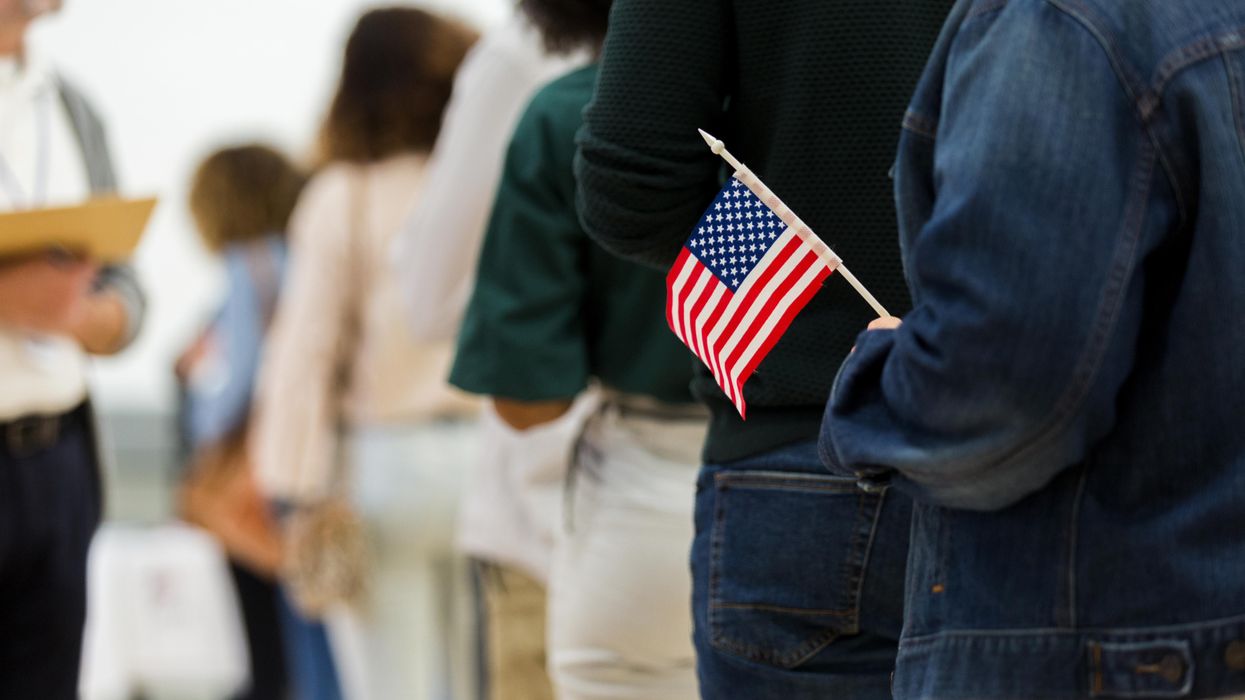Blockwood is executive vice president of the Partnership for Public Service and a fellow of the National Academy of Public Administration.
A civilized nation cannot be politically divided on everything. We (Americans) must share common ground on basic ideas — human rights, economic freedom, the right to think and speak freely, physical and psychological security — for our nation to thrive.
Before the 2020 election, I noted in a Federal Times piece that we were on the precipice of a modern-day civil war. Sadly, we have not gotten off that trajectory.
Discourse has collapsed. Trust has eroded. So, too, will all hope of a prosperous nation if we don’t change course.
America needs a president and Congress trusted by those they serve. We the people must also play a role — by holding our leaders accountable and not allow the unraveling of civility, degradation of trust in people and politicization of our most sacred institutions. In 2018, the Pew Research Center showed growing partisan differences in public attitudes toward many federal agencies. Four years later, this same discord hasn’t improved. Only four in 10 Americans say they trust the federal government to do what is right at least some of the time, according to a national survey conducted by the Partnership for Public Service and Freedman Consulting.
Gallup polls show public confidence in federal institutions, including the Supreme Court (25 percent), presidency (23 percent) and Congress (7 percent), has declined to the lowest levels since annual measurements began nearly 30 years ago.
Global democracy is declining. And, for the first time, the International Institute for Democracy and Electoral Assistance included the United States on its list of backsliding democracies.
Does this mean our democracy is doomed to fail? Though some believe it is inevitable, it’s not a foregone conclusion just yet.
We must vote. We must serve. We must advocate for reform and restore trust in government.
Good places to start include:
- Strengthening our electoral voting system.
- Energizing Americans to value public service and lend their talents and expertise to our most sacred institutions.
- Focusing less on individual identity that divides and more on commonality that unites.
The country has been calling for election reform and increased participation for years. Pleas for fairness and accusations of fraud have increased, especially given the alarming trend where candidates do not concede, and results are not always immediately accepted.
We must maintain trust in elections as well as seek to simplify the voting process, update registration systems, improve public education campaigns about voting and strengthen accountability mechanisms. Congress has an opportunity to modernize and clarify ambiguities of the Electoral Count Act of 1887 particularly with respect to selecting or objecting to state electors.
Government needs the best talent. While there is no shortage of criticism for government and public servants, only roughly 6 percent of the nation’s total workforce serve in it, and we can all agree: Too few understand how it works.
Government should serve the people. But to be most effective, the people must support it, serve in it and trust it.
Public servants should represent the best our society can offer, and elected and career government officials can help build trust by modernizing operations, improving transparency, holding accountable those failing to perform, and removing barriers to political and career service. Congress should reform the Senate confirmation process, and the Office of Personnel Management should reevaluate executive core qualifications and performance management systems, create a single leadership standard across government, and better utilize hiring platforms and authorities.
Differences can sharply divide. It can also be a strength if embraced. According to a 2019 Pew Research Center study a majority of Americans (57 percent) said racial and ethnic diversity is very good for the country, and more than six-in-ten said it has a positive impact on the country’s culture. Diversity, equity and inclusion should be a goal, not an argument to divide.
Yet, diversity, equity, and inclusion are creating two Americas.
Genuine diversity, equity and inclusion should welcome everyone, benefit all, and move far beyond race, ethnicity, and gender to include ideological and political spectrums. Importantly, diversity and inclusion should not replace but rather supplement competence and experience. Politicians, both candidates and elected officials, should not use diversity, equity and inclusion to attack or defend policy positions, nor legislate or use presidential action to dictate how we should think, learn, speak or view the world.
Further, President Biden has an opportunity through the newly established Chief Diversity Officers Executive Council to provide a whole of society strategy and to facilitate dialogue with the public about our differences and offer a way forward that integrates, appreciates and elevates everyone.
We can be divided, or we can be patriotic. Democracy does not work without compromise. Democracy has failed if civil war becomes necessary.
Democracy is a concept not yet perfected. It may never be. In a truly free state, democracy can only be preserved through nourishment and finding common ground. It will take time, intentionality, strong leadership and trust to restore our faith in democratic institutions.
We all have a role in sustaining our democracy — a president must lead while unifying our country; Congress must find common ground and enact laws that strengthen society; and the public must vote responsibly and hold those we elect to represent us accountable and to the highest standards.
No one is coming to save us. It is up to us — and within us — to save ourselves.




















